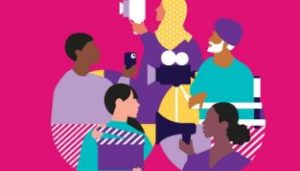Information now available on Victoria’s multicultural communities
 Victoria’s vibrant multicultural communities have been profiled in a new resource for organisations and individuals wanting to engage with them.
Victoria’s vibrant multicultural communities have been profiled in a new resource for organisations and individuals wanting to engage with them.
The Department of Families, Fairness and Housing has recently posted 37 profiles of cultural communities in Victoria on its website.
The profiles are designed to be a snapshot of each community, showing their diverse and unique needs. This includes where the community primarily lives, the languages they speak, significant dates and communication and engagement tips.
For instance, the site gives an overview of Victoria’s Afghan community.
“The Afghan community in Victoria is the largest in Australia. There are 43,845 people in Victoria who have Afghan ancestries, of which 25,432 were born in Afghanistan,” it says.
“The following ancestries have been included in defining the Afghan community: Hazara, Pashtun, Tajik, Turkmen, Uzbek and Kyrgyz.
The gender breakdown for the Afghan community is male: 23,929 (54.6 per cent), and female: 19,916 (45.4 per cent).
Most of the Afghan community is young, with the largest cohorts aged from 0–14 (30.2 per cent) and 25–34 (21.7 per cent).
Of the South Sudanese community, the site says: South Sudan is the world’s youngest nation and was officially established on 9 July 2011 after decades of political struggle”.
“The South Sudanese community in Victoria is a relatively new one. Before 2001, South Sudan–born people arriving in Victoria were mainly skilled migrants.
“Between 2001 and 2010, most South Sudanese people arrived in Victoria through the Australian Government’s Humanitarian Migration Program.
“Drought, famine and war led to many South Sudanese people seeking refuge in neighbouring countries like Egypt, Kenya and Ethiopia. After living in refugee camps in these countries, many eventually resettled in Australia.
“Melbourne has been a major destination for South Sudanese people because of its established community and social networks,” the site says.
See the full profiles here: Community profiles | vic.gov.au (www.vic.gov.au)












